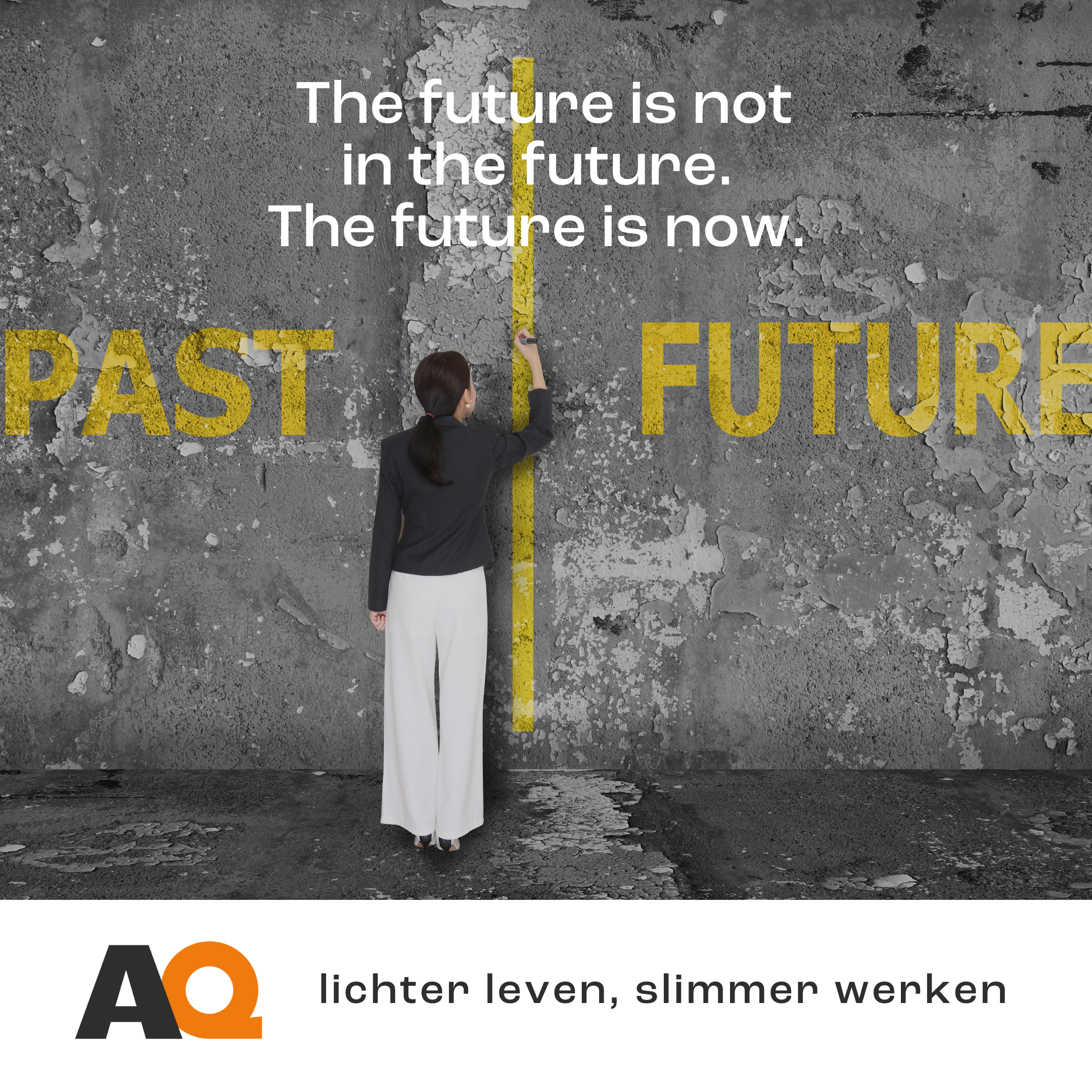Blog
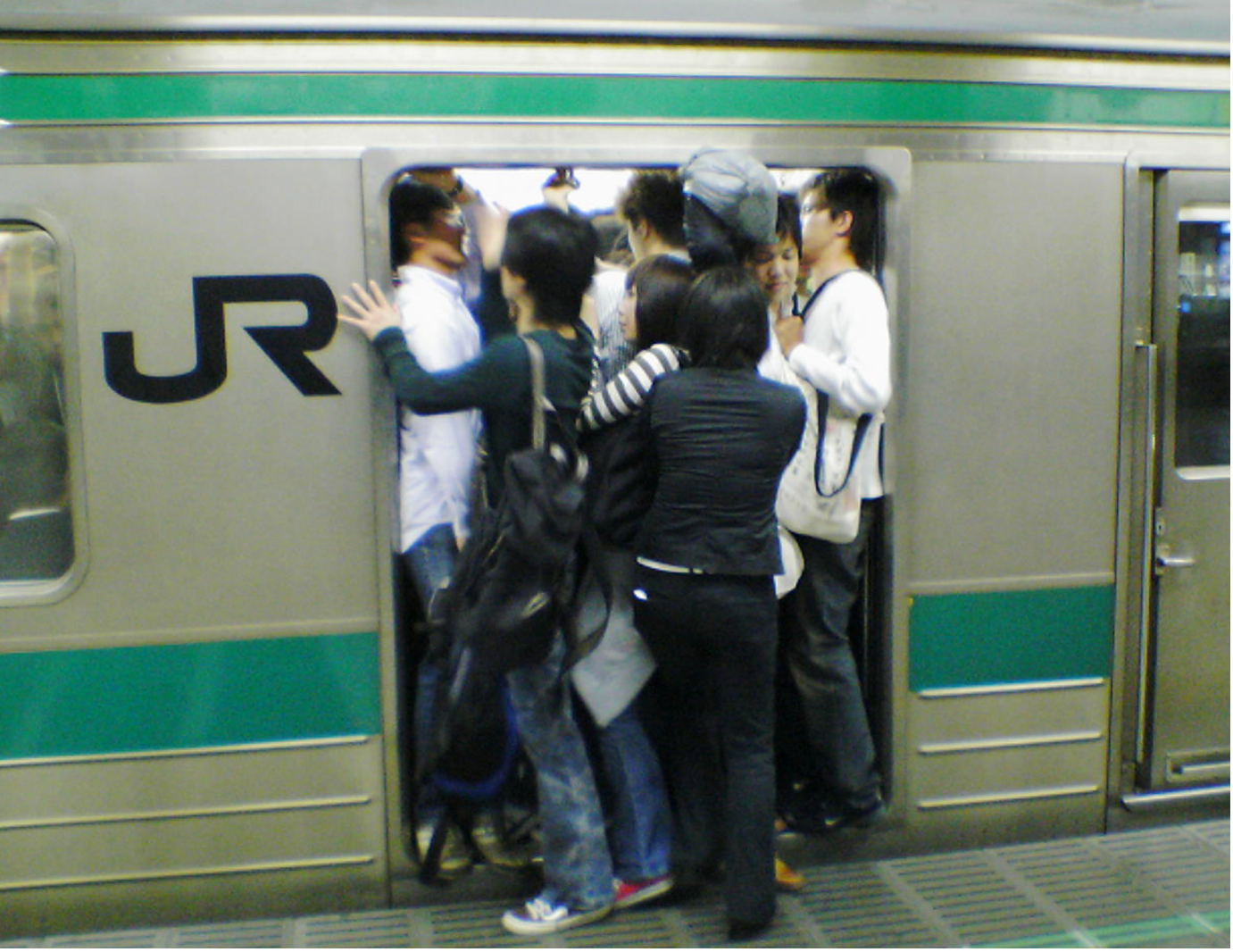
Cosy: back to back and belly to belly
"Whether it could go faster towards burnout?
And then it was silent. She had clearly not expected this question. When, after looking away for a while, she looked into my eyes again, I could clearly see tears, frustration, insecurity. This woman had already had a very nice career and now held a director's position in a large American company.
But the series of crises had taken their toll: firstly, the corona crisis, through which she found a difficult balance for herself but also with her team, but now also the supply chain crisis, through which every day is firefighting.
Like a driver who has a breakdown, she has been stepping up a gear to get back in the pack. Where she used to be in the car, she now started her first Teams session and so it went on until late in the evening. She became tired and found it difficult to disconnect. Her energy level dropped and her connection with family members suffered as well.
During a team meeting, we did an AQ assessment, and while preparing for this review, I was already worried: sky-high work stress, but also a very high score on grit, on persistence.... The ingredients were there.
"I realise that things cannot go on like this. I know that working even harder is not the right solution, but I am being sucked into it. I feel that I am not at my sharpest mentally but my people count on me."
When she showed me her schedule a little later, it became quite clear to me: not only did she have "Back to Back" meetings all day, but "Belly to Belly" meetings popped up more and more. When I spontaneously noticed this, we both burst out laughing and a lot became clear
Belly to Belly meetings seem to be the next thing to keeping the workload under control: by this we mean accepting several meetings at the same time of day. Not only do you not have time to catch your breath after a Back to Back meeting, no, during that same hour you have to choose which meeting you will attend, or fly in later, or miss it and then have to apologise,....
What is next? Three or four screens on our desk and attending several Teams meetings at the same time? I suspect that some readers will now say: "hmm, that's another idea", but be assured that you will then not attend any of the meetings and make a useful contribution. Also, your brain will tell you very quickly that it is getting overloaded.
Working even harder may be a temporary solution, but it is not a structural one. This situation requires us to ask more strategic questions:
- What can be done differently?
- Where can we simplify?
- What do we no longer do?
- Can I delegate something?
- Do we have the right resources?
- Are we using the right tools?
And above all:
Is this how we prepare for the next changes? Changes that will inevitably come our way.
In other words: on the verge of burnout, I am not at all open to new insights, challenging ideas, alternative solutions. On the contrary, I will protect myself and resist any change. I will be persistent, even if I feel that the current processes do not work (anymore). I get stuck in a "closed mindset" and this does not make me the most pleasant colleague, on the contrary.
The AQ assessment will give you a good picture of your personal situation: how you are doing with the most important competencies in times of change and how you look at your work environment (supportive or not). Also how your personality deals with change will be mapped. This results in a comprehensive picture of you in change and what you need to pay attention to.
If you do this assessment as a team, then these aspects will clearly emerge at team level, including your Change Readiness Index, i.e.
How ready are you as a team for the changes that are inevitably coming?
More information on this assessment can be found at https://www.adaptieveintelligentie.be/assessment.
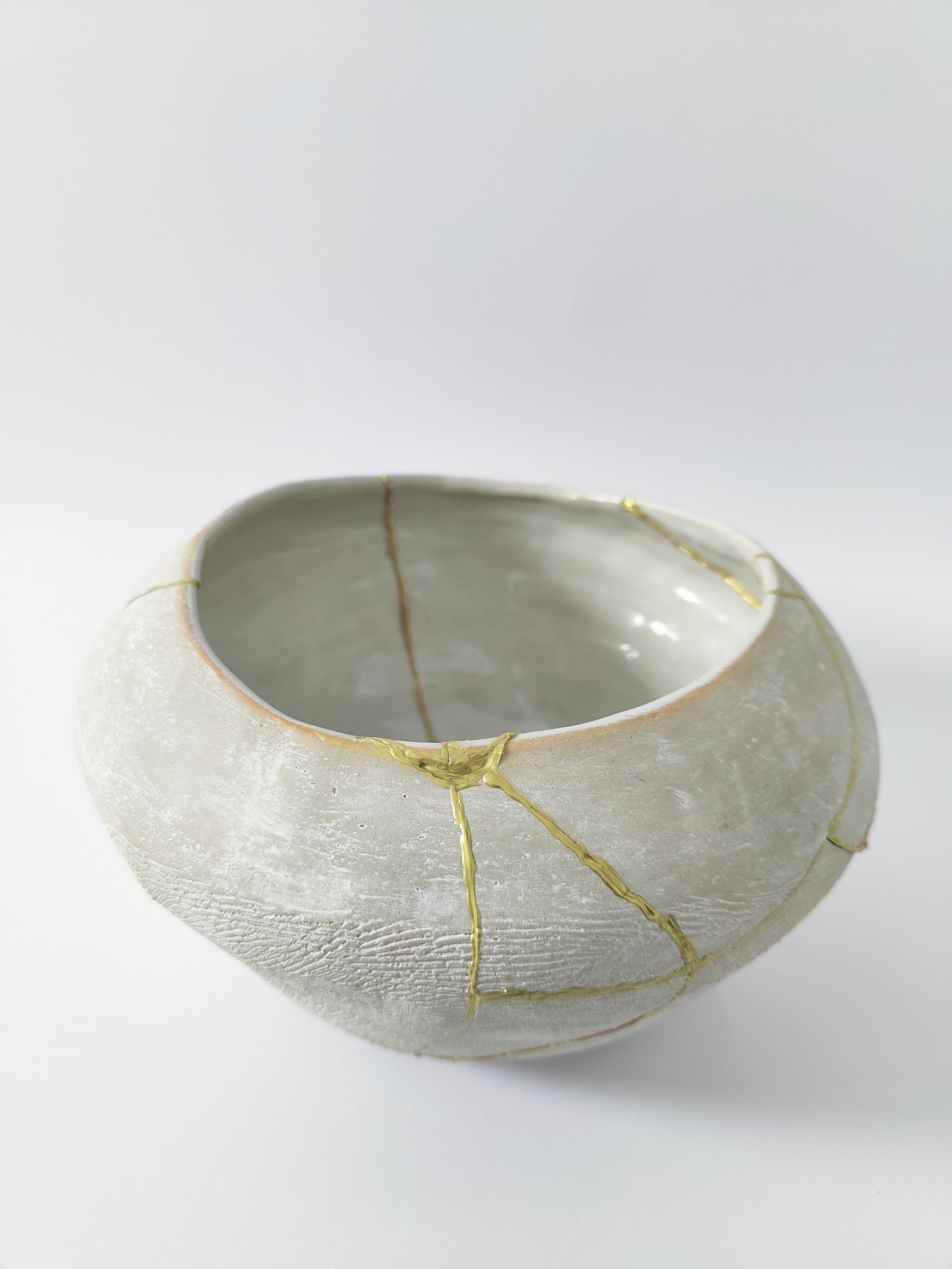
About vulnerability, resilience, adaptability and imperfection.
About vulnerability, resilience, adaptability and imperfection.
When I recently packed everything to move from the quiet countryside to the coast, I was confronted, like everyone in such a situation, with some crucial questions.
What's important enough to take with me?
What has real value in my life?
What do I take with me and what do I let go of?
One by one, our belongings were taken away and many things were quickly given a different destination. But to my great surprise, or not, my creative works were top priority to be moved and to be packed with great care. That in itself was a special awakening and made me realise how important my creativity is to having a balanced life. My time in my studio or in the academy is a time of standing still, of feeling and listening, of being a beginner again, of enjoying a warm nest. The resulting works, however simple and unimportant, have a great personal value for me.
When we carried these boxes to the car, the bottom went out from under one box and all those works fell in shards on the driveway. After a single moment of shock, I immediately decided to see the relative importance of the situation and picked up all the shards, down to the smallest detail. Not a hair on my head doubted that I would do something with this, but I had no idea what it would be.
While unpacking, the right book appeared at the right time. “The Japanese way” by Erin Niimi Longhurst explains many beautiful themes such as ikigai, wabi sabi, shinrin yoku but also Kintsugi. Kintsugi (literally: golden connection) teaches us to find beauty in imperfection. In ancient Japan, broken objects were not immediately thrown away, but repaired with gold resin and with great care. So rather than an object being thrown away or mourned for its shortcomings, it is restored and thus becomes more valuable than ever. This encourages us to consume more respectfully and possess more consciously, but Kintsugi's concept is of course not only applicable to objects and stuff. A Japanese proverb summarizes this very nicely: Chousho wa tansho:
Our strengths are our weaknesses.
We often hide and create a perfect armor that suits our image. But especially the adversity in our lives makes us who we really are. Just as we need the bitter to taste the sweet, the difficult circumstances, the scars we incur, are an essential part of ourselves and should be embraced. Scars are allowed to be there and should not be hidden.
Once settled, the box with the shards was still there. In my new place, with a perfect view, I took all the pieces and put them back together with care. The time I spent on this was very meaningful and meditative. I was completely drawn into the here and now and enjoyed every piece that found its neighbor again. I was in my new place, with my strengths and my weaknesses and it was OK.
Nothing is ever really broken.
Rudi Francken, 18 November 2021
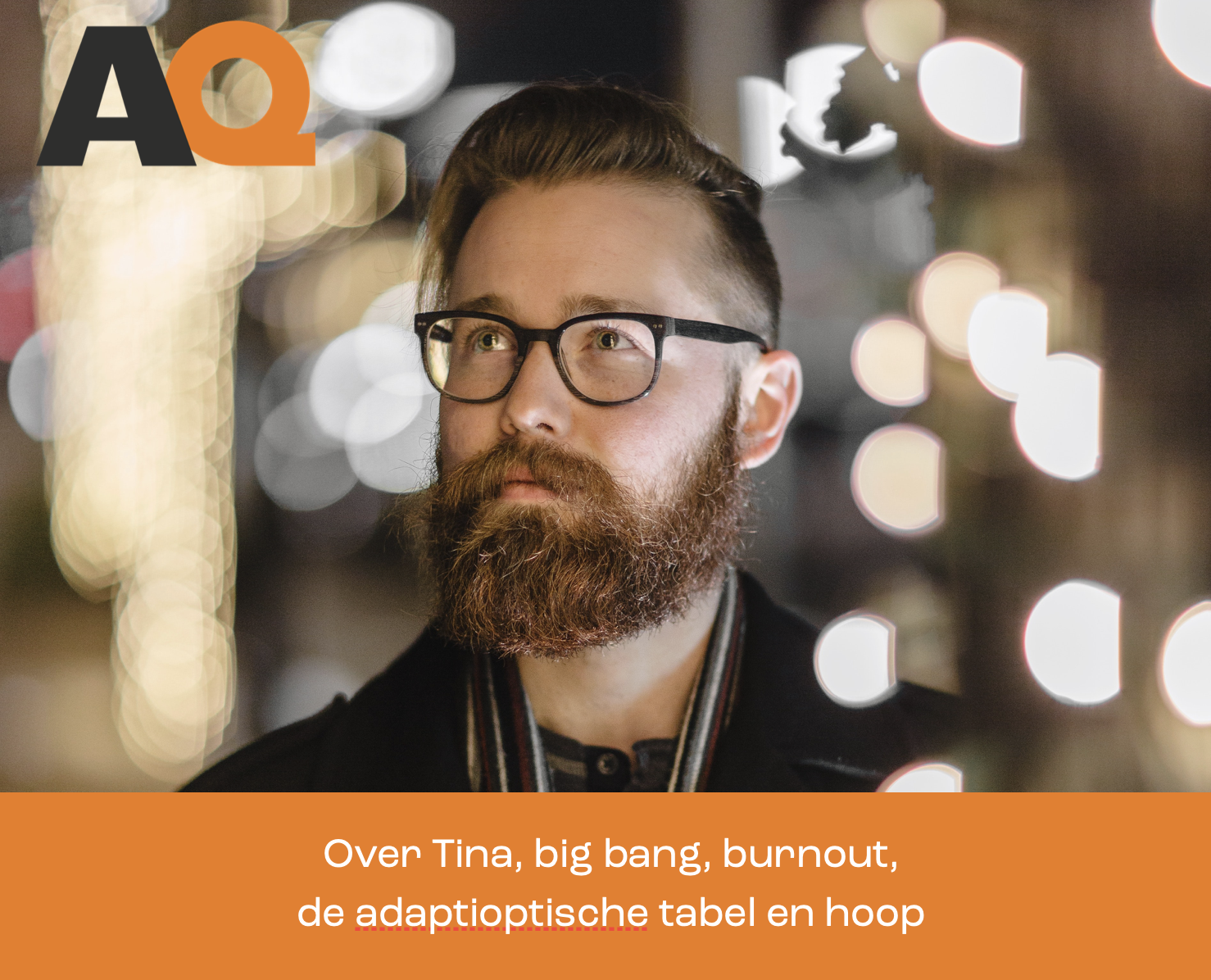
About Tina, big bang, burnout and hope
Recently, I read the book "Van Big Bang tot Burn-out, het grotverhaal over stress" by Dutch psychiatrist Witte Hoogendijk and Wilma de Rek (head of books at De Volkskrant). Not just any book about stress: what I found remarkable was the (enormous) time perspective with which both authors look at the evolution of the theme of stress.
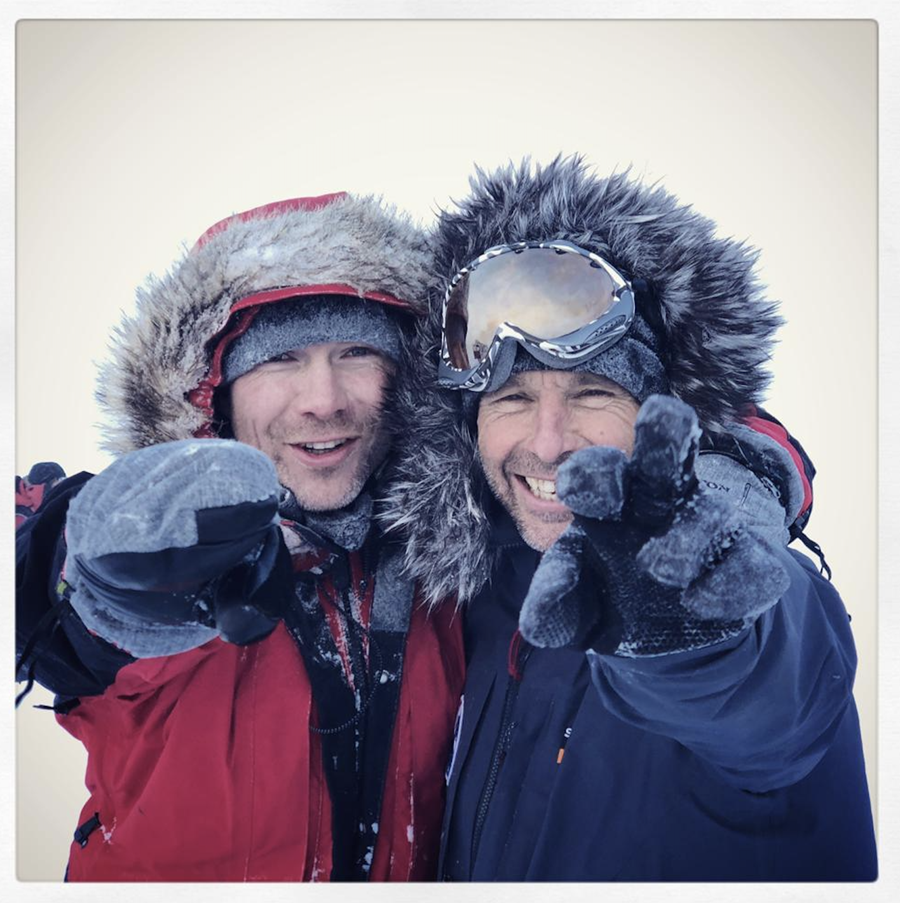
Tribute to AQ ambassador Dixie Dansercoer
Hey Dixie,
We would like to say a few words to you. We were on expedition together in Iceland, in Switzerland, we stood on the podium together at keynotes, you were an AQ ambassador, in and alongside our book. Rudi and I felt that click with you from the start, in every fibre, in word and deed.
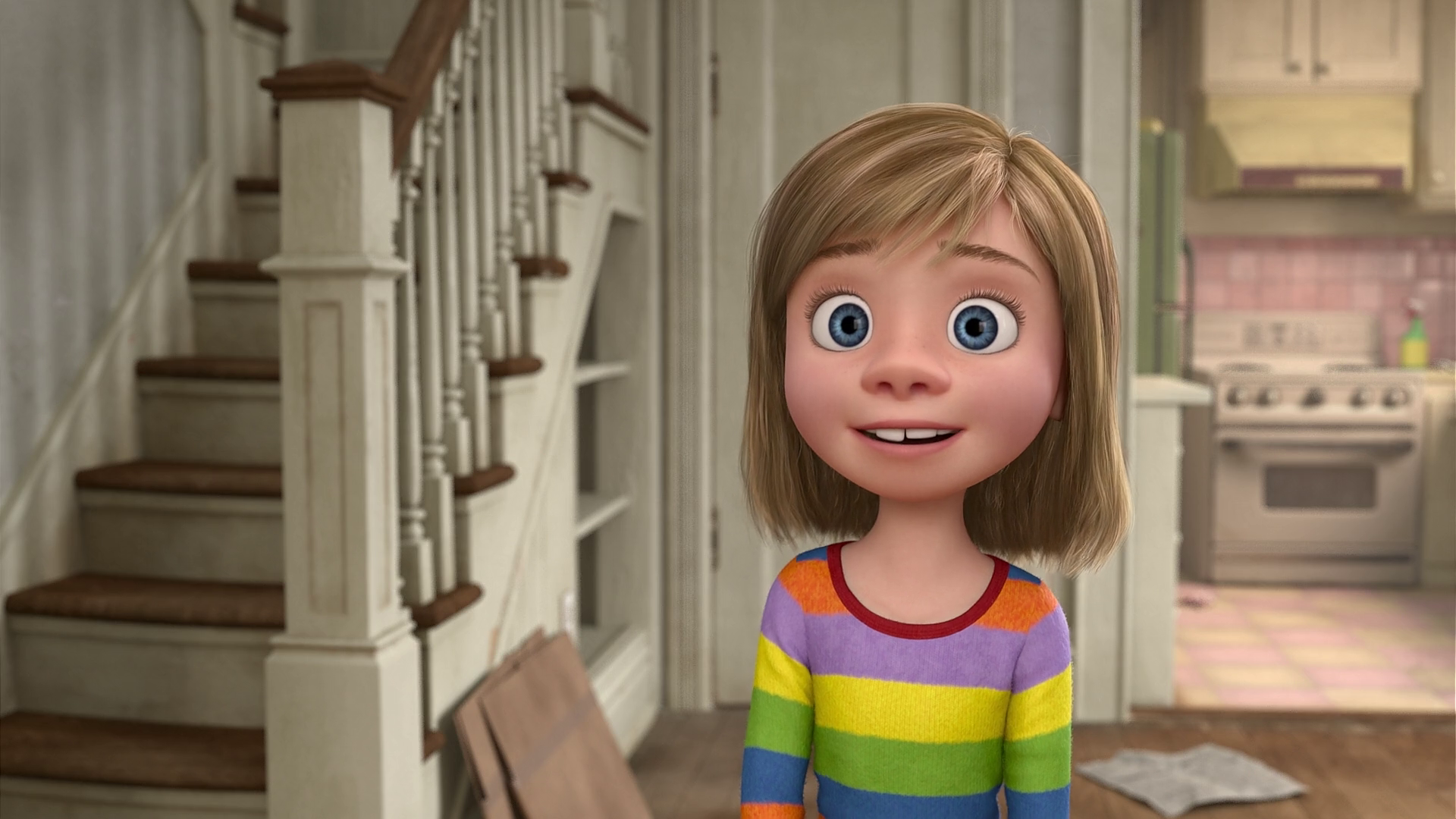
Adaptivity and our personality
Why does one person succeed and another person not in adapting smoothly to changes? Why is it possible for me and not for others? Bizarre, and to understand this, it is necessary to bring in neuroscience for a moment. Boring, you think? Thanks to Disney it doesn't have to be.

5 tips to prevent zoomitis
We are more and more behind our screens and often at home too. This revolution (it wasn't really an evolution) has catapulted us into a digital age and this requires the necessary adjustments. How can you work productively and effectively while avoiding Zoomitis*? Here are a few tips.
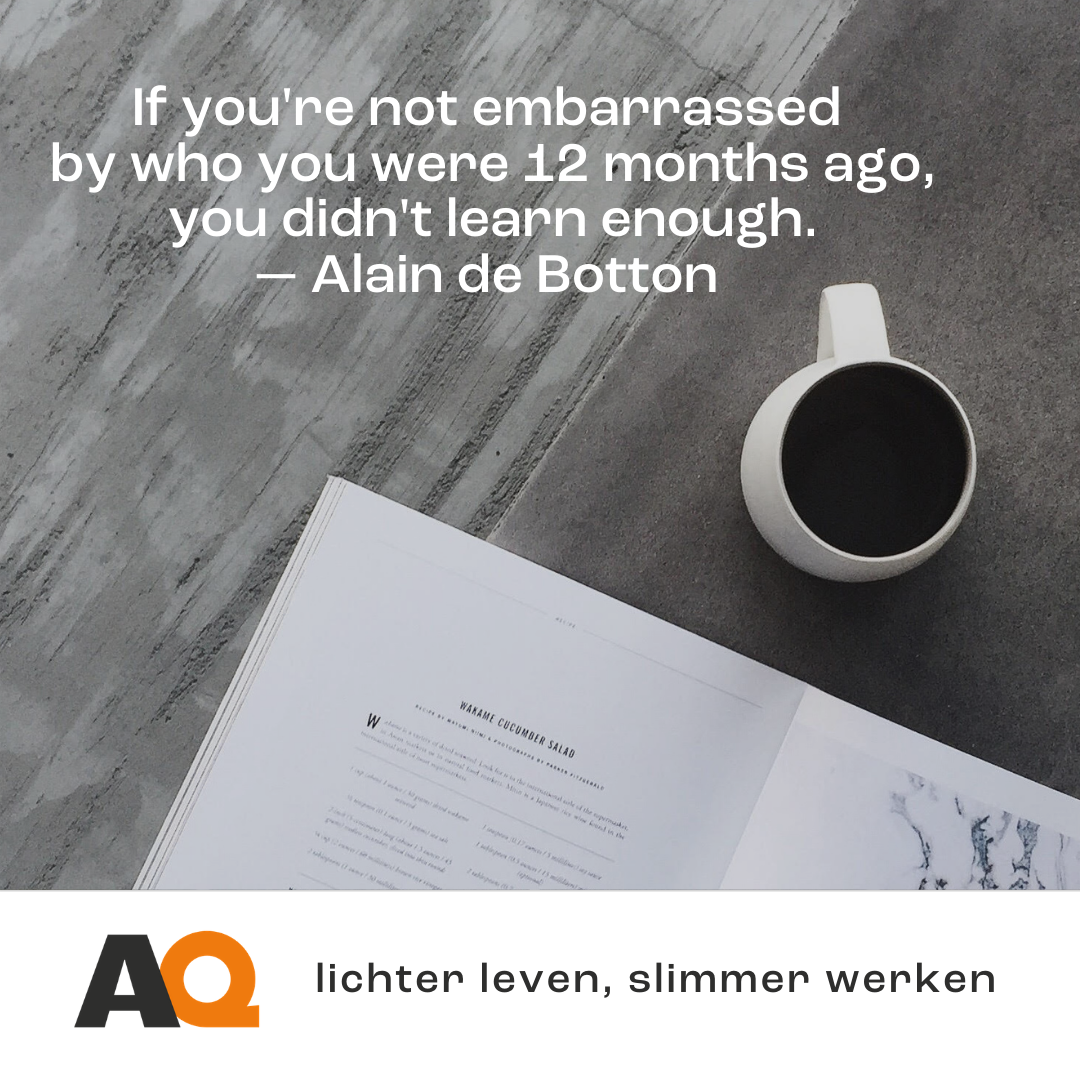
If you're not embarrassed by who you were 12 months ago, you didn't learn enough.
If you're not embarrassed by who you were 12 months ago, you didn't learn enough.
